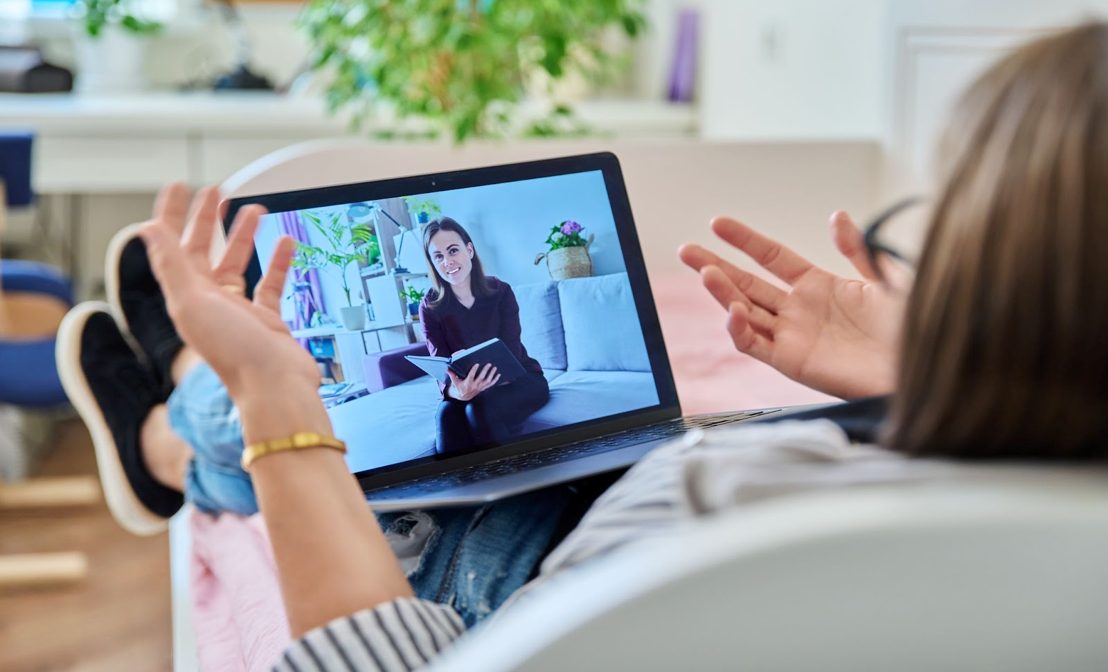
@ShahidNShah


During this modern time, there’s no longer any shame associated with seeking support for your mental health. With some people experiencing mental health issues, such as anxiety, depression, eating disorders, and major psychiatric disorders, therapy is an important tool for obtaining support for these conditions.
No longer confined to traditional in-person sessions, therapy is embracing the power of technology to reach a wider audience and provide innovative methods of care. Not only can students undertake a counseling certificate online and complete other mental health and counseling courses but patients can also go to therapy via Zoom.
This article will explore how technology has transformed modern counseling, including what technologies are being used, how counselors are using them, and what the future of the field could look like. So, continue reading to learn more about this valuable topic.
Therapy or counseling is offered by mental health professionals such as counselors and psychologists. It is the process of talking about your problems and having the mental health professional use their training, qualifications, and experience to help people navigate those issues. Psychologists and counselors will use a variety of different therapies, depending on the issue a client is presenting with.
Some key examples of therapy include:
The types of issues people might seek counseling and therapy for are wide-ranging but could include:

In today’s rapid-paced, hyper-digitally connected world, the role of technology in counseling and mental health treatment has become essential for providing accessible, flexible, and effective mental health care.
Technology use in counseling isn’t just a modern addition; it’s a critical aspect of effective practice. From expanding access to mental health services to those who need it most to providing personalized, data-driven insights and analysis, technology has reshaped the landscape of therapeutic mental health care.
Online digital counseling uses a variety of therapeutic approaches that would also be used in person, such as cognitive behavioral therapy (CBT), psychodynamic therapy, dialectical behavior therapy (DBT), and mindfulness-based therapy. These modalities are easily adapted for online, remote delivery to suit the various needs of different clients.
Therapists can use a range of different communication techniques to offer therapy to clients. These include:
Digital therapy can also offer immediate assistance to those who need it. Many different online counseling and therapy platforms offer features such as in-app messaging or real-time chat that provide immediate therapy assistance to clients in crisis moments. These methods ensure that clients can access mental health support when they need it most, even outside of scheduled session times, such as after hours or during busy periods.

There are a few benefits to digital therapy, which we’ll explore now.
For one, online digital therapy can be incredibly useful for those living in rural areas or regions that have few therapists available in person. It can be difficult for people in such areas to get to a therapist’s office while also juggling work and family responsibilities. It can also be costly to see a therapist, which is, therefore, a major advantage of online therapy, which tends to offer cheaper rates and a bigger pool of counselors to choose from.
Furthermore, by incorporating technology into their regular practice, therapists can even provide long-distance remote counseling for couples or families who live in different areas to them. Online therapy can also offer some benefits to qualified counselors with the appropriate professional licensure who can offer their services without needing to rent an expensive office or paying for an expensive commute to get to work.
In addition to this, people living with anxiety, depression, or other mental health issues can have a more convenient way to attend each scheduled therapy session and treat their mental illness. For a person with mental health issues who is overwhelmed and feeling fatigued and anxious, it can sometimes be hard to leave the house or attend to daily responsibilities, let alone attend a therapy appointment. Online remote sessions with a mental health nurse, counselor or therapist can provide crucial support without the added stress of commuting and leaving the house.
Similarly to this, for a person with social anxiety or a panic disorder, it can be incredibly daunting to go to a new location and navigate their feelings and thoughts in a face-to-face counseling session. Remote therapy can provide an excellent solution for people experiencing these challenges. A person with anxiety can choose to write to their counselor on their smartphone using mental health apps or chat, rather than talking to their counselor during a live counseling session and travelling there.
This helpful article has explored the digital couch and the role of technology in modern counseling. We’ve explained how tech can assist therapy, and the key benefits of digital counseling for people experiencing mental health issues.

Chief Editor - Medigy & HealthcareGuys.
In the MedTech sector, small and medium-sized organizations are the primary drivers of innovation, developing new technologies for diagnosing, monitoring, and treating various conditions. Despite …
Posted Jan 6, 2025 Medtech & Devices Digital Health Funding
Connecting innovation decision makers to authoritative information, institutions, people and insights.
Medigy accurately delivers healthcare and technology information, news and insight from around the world.
Medigy surfaces the world's best crowdsourced health tech offerings with social interactions and peer reviews.
© 2026 Netspective Foundation, Inc. All Rights Reserved.
Built on Jan 23, 2026 at 1:30pm